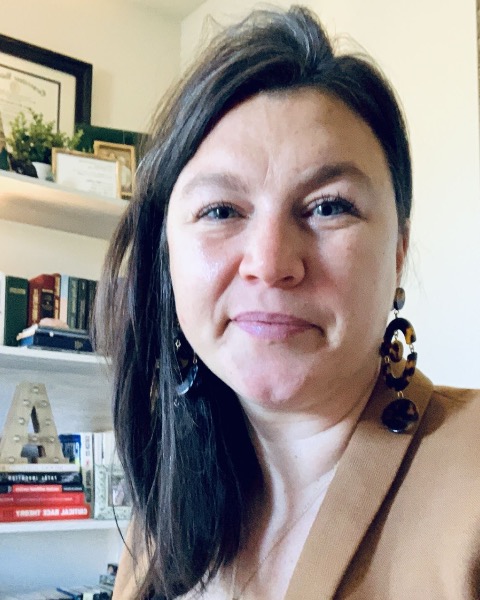Academic and Research Skills
Diversity, Equity, and Inclusion
Health Equity/Social Determinants of Health
Health Services Research
Public Health
Quality Improvement/Patient Safety
Trainee
Moving Upstream: Creating Targeted Interventions to Address Structural Racism in Clinical Settings
-

Yarden Fraiman, MD, MPH (he/him/his)
Assistant Professor
Beth Israel Deaconess Medical Center/Harvard
Boston, Massachusetts, United States -

Christie Lawrence, DNP
Assistant Professor
Rush University
Crete, Illinois, United States -

Molly Fraust- Wylie, MA (she/her/hers)
NICU Family Program Manager
Beth Israel Deaconess Medical Center
MA, Massachusetts, United States -
EB
Elizabeth Bonachea, MD (she/her/hers)
Associate Professor of Pediatrics
PEDIATRICS
Nationwide Children's Hospital
Columbus, Ohio, United States -

Kayla Karvonen, MD, MAS (she/her/hers)
Assistant Professor
University of California San Francisco
San Francisco, California, United States -

Mia Malcolm, n/a
Programs Care Manager
Ollie Hinkle Heart Foundation
St. Louis, Missouri, United States -

Diana Montoya-Williams, MD MSHP (she/her/hers)
Assistant Professor of Pediatrics
Children’s Hospital of Philadelphia
Philadelphia, Pennsylvania, United States -
.jpg)
Jeannette Myrick, MPH (she/her/hers)
Senior Clinical Research Coordinator
Beth Israel Deaconess Medical Center
Boston, Massachusetts, United States -
.jpg)
Kimberly Novod, MPA (she/her/hers)
Founder/Executive Director
Saul's Light
New Orleans, Louisiana, United States -

Michelle-Marie Peña, MD (she/her/hers)
Assistant Professor of Pediatrics, Health Equity Medical Director
Children's Healthcare of Atlanta
Atlanta, Georgia, United States -

Ashlee Vance, PhD, MA, RN, RNC-NIC (she/her/hers)
Assistant Scientist
Henry Ford Health
Detroit, Michigan, United States
Leader(s)
Co-Leader(s)
Workshop Description: Drivers of racial and ethnic health inequities in the U.S. are due to structural, institutional, interpersonal, and internalized racism. However, most efforts to achieve health equity focus on individual-level interventions, such as anti-bias education and social determinants of health screening. Yet, individual-level interventions alone have been unsuccessful in closing the equity gap. Given the persistence of racialized inequities, efforts to eliminate them must evolve to identify structural and institutional drivers of inequity, and create and evaluate interventions aimed at these “macro-level” drivers. Identification of macro-level drivers can be challenging for healthcare professionals given the emphasis on individuals, in training and clinical work.
This workshop, facilitated by a diverse multidisciplinary team (physicians, nurses, and family partners) begins by orienting participants to the construct of race and how racism operates at multiple levels within the healthcare system. Attendees then proceed into facilitated, small group sessions, guided by clinical vignettes of inequity in specific contexts (General Pediatrics and Newborn Medicine/NICU) for hands-on experiential learning. Participants will start by identifying the level of racism driving the inequity. Participants will have a toolbox, including a “racism root cause analysis,” to use in their small group work. In the second activity, participants will build upon their analysis by creating targeted interventions at the structural- and institutional-level.
By attending this workshop, participants can expand their knowledge of racism as an upstream driver of health inequities and acquire practical skills for identifying, then designing macro-level interventions at their local practice settings, thereby promoting health justice.
Learning Objectives:
- Upon completion, participants will be able to describe race as a social construct and differentiate the four levels of racism.
- Upon completion, participants will be able to develop an equity-focused “racism root cause analysis” with specific attention to the macro-level drivers of health inequities.
- Upon completion, participants will be able to design interventions, targeted to specific levels of racism, to address health inequity within the clinical environment to promote health justice.

